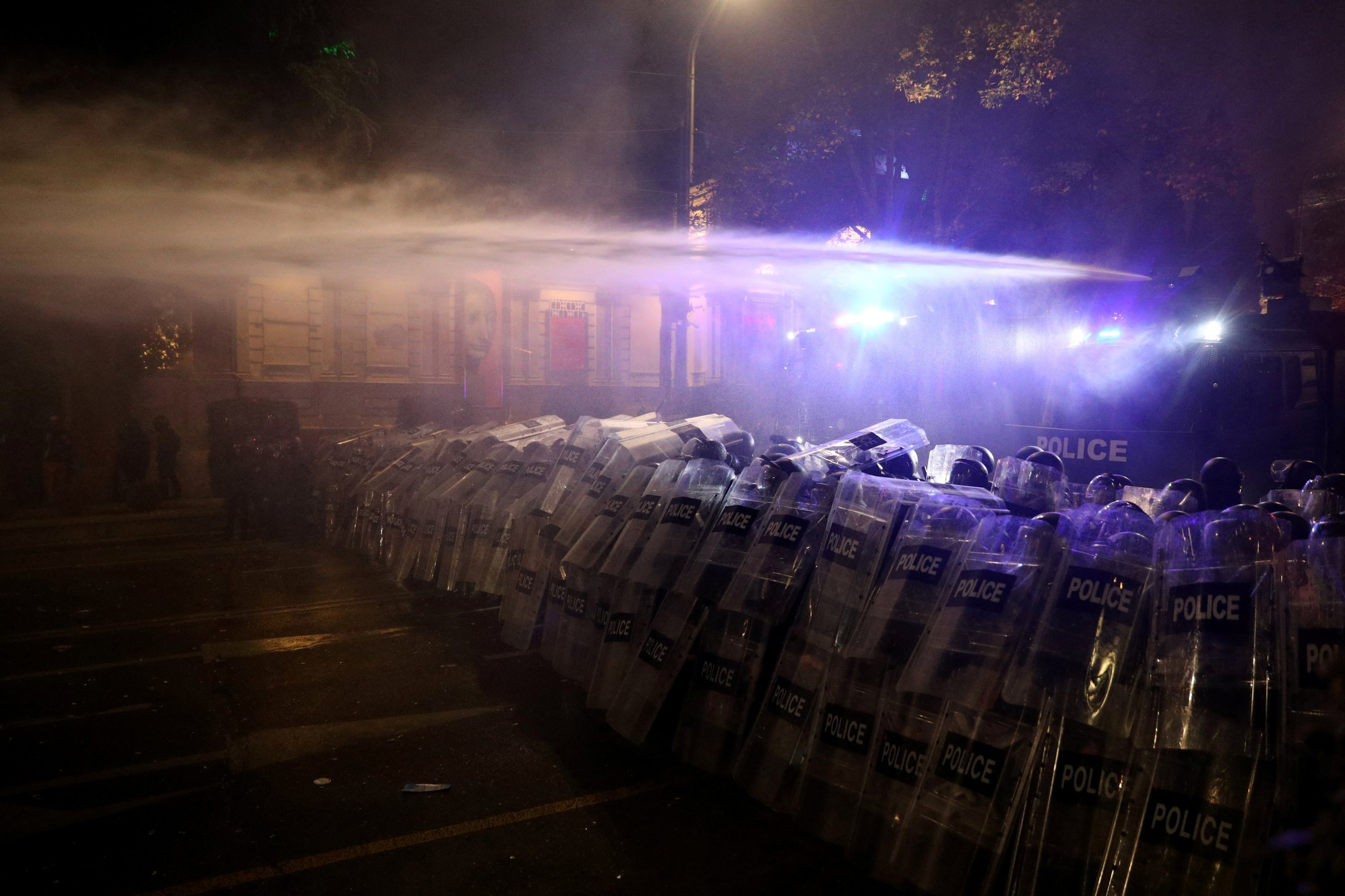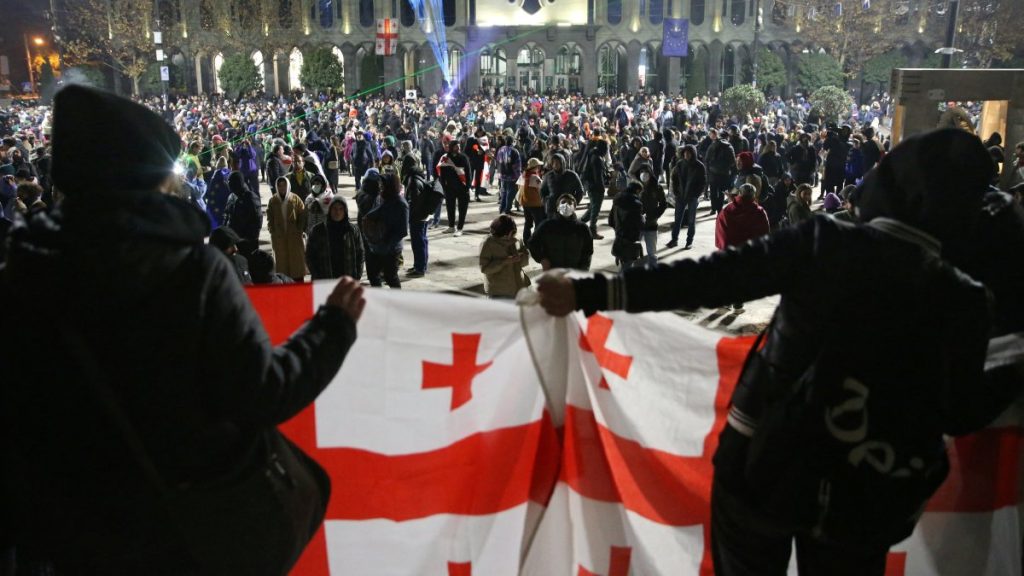The history of the rivalry between the West and Russia in the Caucasus did not begin yesterday, nor is it a phenomenon that can end tomorrow. While this rivalry was called the “Great Game” in the 19th century, it evolved into the “New Great Game” in the 20th century and continues today between Russia and various Western actors.
The title of this article, drawn from Ernest Hemingway’s work of the same name, is no coincidence. This rematch in the Caucasus, currently playing out over Georgia, mirrors the one that unfolded over the Karabakh issue in the past. Interestingly, the Russian-West rivalry tied to the Karabakh conflict also connects to Hemingway. Key West, Hemingway’s hometown, was chosen as the venue for the Key West talks, an important initiative in the search for a solution to the Caucasus conflict in the early 21st century. From a Hemingwayist perspective, the intense turmoil in Georgia today suggests that “the bells are tolling” for some in the Caucasus. The question is: for whom are the bells tolling in Georgia?”
Intrinsic cause, effect
It is possible to draw various conclusions about the causes of the increasingly severe turmoil in Georgia. While it is accurate to view it as a conflict between the pro-Russian government and the pro-Western opposition, this is the most simplistic explanation. For years, the West has been winning in the rivalry between the West and the rest. However, we are now witnessing a gradual decline in the West’s influence in many areas where positions diverge. The fact that the pro-Western side is now the aggressor in Georgia supports this view. In this context, political logic suggests that there must be a deeper cause for the chaos in Georgia, which also carries the risk of civil war. Perhaps the most insightful analysis of this cause comes from the American political scientist Samuel P. Huntington, who strongly advocated the idea of a “clash of civilizations.”
Huntington, whose so-called clash of civilizations thesis provides a guide to today’s chaotic society, describes the world as “the West and the rest” and explains the problem between these two civilizations 27 years ago, in 1997, as follows: “The central problem in relations between the West and the rest is the gap between the West’s efforts to promote Western culture as the universal culture and its declining ability to do so.” With these statements, Huntington is in the position of a claimant trying to prove his claim with a confession.
Unfortunately, this is the most authentic explanation of the current chaos in Georgia. When the Western actors, who have been trying to detach Georgia from its identity and integrate it into the West for years, realize that they are not capable of doing so, the most urgent method they resort to is to create an atmosphere of chaos. The test that made the West realize the “gap” Huntington meant was the parliamentary elections held on Oct. 26, 2024. The chaos in which Tbilisi is mired today is the “results” of the Georgian people’s electoral choice.

Elections’ result: Endless protests
The most painful outcome of the October elections in Georgia is still the endless protests. Immediately after the elections, incumbent Georgian President Salome Zurabishvili described the results as a “Russian special operation,” signaling that the following days would be troubled for Tbilisi. Unsurprisingly, the European Union, the United States and NATO were the first actors to support Zurabishvili’s claims that the votes had been stolen. It would be a humble analysis to think these allegations are entirely unfounded. The allegations about Russia’s performance in the U.S. elections contain such a possibility in Georgia. The real issue, however, is the political self-determination of the Georgian people in a wise manner. Otherwise, Georgian President Zurabishvili’s slogan, “It is the European ideal that Russian proxies are crushing on the streets of Tbilisi. Wake up Europe!” does not go beyond being the spokesman of the West. Indeed, these escalating slogans were perceived as such by Irakli Kobakhidze, Prime Minister of the pro-Russian Georgian Dream ruling party, and Kobakhidze announced at a press conference on Nov. 28, 2024, that membership negotiations with the EU were suspended until 2028.
The most dangerous result of Georgian politicians’ high-level standoffs, which have turned into tools of Western and non-Western actors, is the endless protests that started on Nov. 29, pitting law enforcement officers against citizens. The protests, which have lasted 10 days as of the current week, have resulted in the injury of more than 100 police officers and the detention of more than 200 protesters.
At the current stage, when we put the events mentioned above in order, we get closer to the answer to the question of “for whom the bells are tolling” in Georgia. For this, we need one more piece of data: the case study. History has never recorded the winner of the Russian-West rivalry in Syria in the last decade. However, the loser is in the daily newspaper headlines: Syrian people. Let us diversify the example. Who is the loser of the West-Russian rivalry in Ukraine? The answer is straightforward: The people of Ukraine and Russia.
I believe we have the answer to the question posed in the title. If the Georgian people do not exercise restraint and strive for stability, they will continue to harbor the potential to become the next Syria or Ukraine. It is important to conclude this article in keeping with the title, which is drawn from Hemingway’s For Whom the Bell Tolls, inspired by the Spanish Civil War. In fact, Hemingway borrowed this title from John Donne’s Devotions Upon Emergent Occasions. I hope the people of Georgia, like Hemingway, will find inspiration in the following lines from Donne’s work because, unfortunately, the bells are tolling for them.


